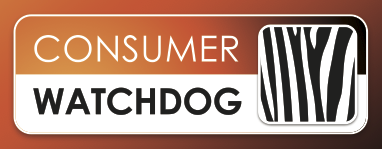But I don’t think this is always true. There ARE times when we DO get off our rear ends and do something about the challenges that face us. The election is a fairly good example. In a nation with a long history of democracy you might think that we‘d be complacent, seeing elections as something a little boring. Also given that, although we are a democracy, we’ve only ever had one party in power you might think that voters might wonder what the point in voting might be. However you, like me, saw the queues of people waiting to vote. The impression I got was of widespread enthusiasm. Every single person I spoke to, with one solitary example, had registered to vote and was certain that they would exercise their democratic rights.
So what has this to do with consumers?
It shows that, as a community, as a nation, that we can show backbone, energy and motivation when we feel the need. Never before have these skills been more needed among consumers. Luckily there are examples of consumers fighting for themselves.
Last week I wrote about a prize scam. Several people received emails out of the blue from a company calling itself the “World Confederation of Businesses” announcing that they had been selected for “The Bizz Awards 2009".
The email said that the award had been based on “on-line surveys and a questionnaire called “Business excellence questionnaire”, market research and official data from Internet statistics, and from the Chamber of Commerce.” Of course this was all nonsense, it was all lies.
I know this because I set them up. I took one of the emails someone had been sent and replaced their details with those of an entirely fictitious company, one that simply doesn’t exist, one they had never contacted, one I made up. This was not a company at all, it was just an email address.
Yes, you’ve guessed it, they got in touch and confirmed that the non-existent company was definitely a winner, based on all that research they claimed to have done.
So what was in it for the “World Confederation of Businesses”? How could they benefit from giving away prizes? Here’s the answer. They were in it for the $3,530 fee I would have to pay them to get my award. That’s about P24,000. That’s on top of my travel and accommodation costs for the prize ceremony in Houston, Texas. I reckon the total cost would have been around P60,000.
That’s why they were giving me a worthless prize.
The good news is that not everyone was falling for this. There was the original reader who sent over the email he had received; he was skeptical about it and suggested we should investigate further. Then, after last week’s article I got another email from another potential victim. Similarly, he had also realised that the prize was too good to be true.
Having a few minutes free he had also told the con artists what he though about them. This is what he said:
“We have been bombarded in Africa with phoney businesses claiming we are winning something. Just because most of us are from poor family backgrounds we get hoodwinked and buy into your clap trap. The next you know you are booking into someone personal account and your money is lost. Surprisingly the perpetrators are often people of African origin mainly from West Africa who milk millions from many people. Thank you for the offer. See you when you see me!”
Excellent. Not only does he see through their ridiculous prize offer and realise that it’s a scam but he also tells them what he thinks of them. Maybe if more people did this they would leave us alone and stop trying to rip us off?
This sort of thing is happening more and more often. Increasingly consumers are coming to us and not asking if something is a scam, instead they’re telling us that something is a scam that they themselves have discovered and all they ask is that we publicise it so that other people won’t fall victim to it.
We’ve also been hearing more often from people who are offended by the pyramid schemes and health scams that sometimes threaten to overwhelm us. Whether it’s vitamin pills, weight loss schemes, travel scams or pseudo-educational and self-improvement claptrap, they’re all there to steal our money. However, as these scams evolve and become more and more sophisticated, we as a community of consumers are becoming more educated and more critical.
I think that we are witnessing the start of something new, perhaps even the emergence of a new scepticism among consumers. It really does seem that as a community we are becoming more suspicious of silliness, more resistant to scammers and more opposed to abuse from crooks, sharks and charlatans.
We have reason to be proud. We are the oldest democracy in Africa. Perhaps we can become Africa’s first truly skeptical nation, a nation committed to reason, rationalism and rejection of nonsense and abuse? I hope so.
This week’s stars
- Every one of the intelligent, skeptical and patriotic readers who made contact with us recently to tell us about scams.

No comments:
Post a Comment